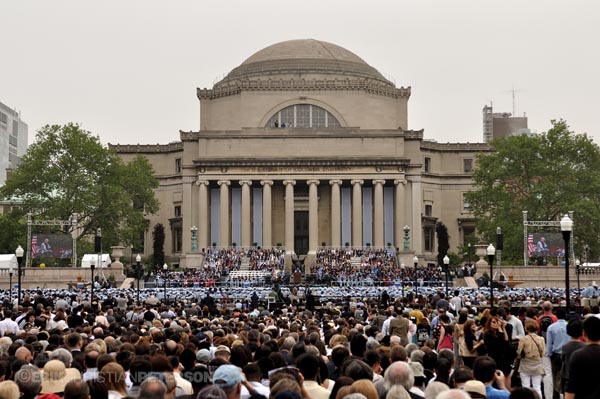During my B.M. and M.M. studies at The Juilliard School, I continuously sought additional learning opportunities to offset the narrow focus of music performance and academic music courses. Very early on in my conservatory studies, I was determined to become as well-rounded and versatile a musician as possible (not an easy task when most of one’s day is consumed with practicing, rehearsals, classes, and study). My supplemental studies led me to teaching artistry, pedagogy training in the Suzuki Method, an English teaching fellowship, arts advocacy, and the meager business courses offered.
Towards the end of my Masters degree, I realized that I wanted more from my musical studies. At this point, I also realized that another performance degree would not make me a better violinist and that I wanted to explore the field of music in a much broader context. I considered several different options, but in the end the doctoral program in Music and Music Education at Teachers College, Columbia University seemed ideal.
As a Masters student at Juilliard, I had already started working as a Morse Fellow, my first foray into the world of teaching artistry. During those two years, I began to understand the importance of reaching out the community at large through education programs. I decided that one way to improve my skills in this area was to earn an education degree. The music and music education program at TC works with each doctoral student to provide a firm foundation in music as an academic subject as well as to nurture each student’s individual interests and goals. My time at TC was wonderful; it was completely supportive of me as a performing artist and was the perfect place for me as a developing scholar. And, the freedom from the confines of the strict conservatory ideology freed my music-making and allowed me to blossom into a better artist.
I believe that musicians easily and often forget that we are not only performing artists and instrumentalists, but are also conservators of tradition, artistic innovators, and educators of the future. As advocates for “Classical” music, we must step out of the practice room and into our communities; we must think outside of the small “Classical” music box and that of the conservatory to explore the rich and ever-expanding world of music. It is our prerogative as musicians to teach others to care about the music we love and to nurture a desire for and the ability to discern artistic and musical excellence.
